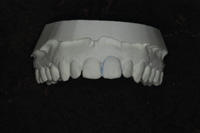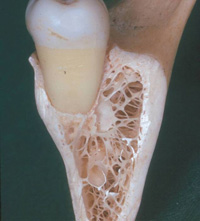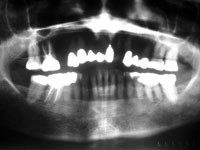
Do you know a dentist (maybe yourself) who prejudges patients’ ability to pay or willingness to accept care? Sure, almost everyone does. The key question is, “Why do we do it, and how do we stop doing it?”
There are several reasons why we do it. I believe dentists prejudge patients because, firstly, they care about them and don’t want them to suffer financial hardships, and secondly, because of doctors’ fear of rejection. During 10 years of in-office consulting, I have discovered that when a client overcomes prejudgment, their practice effortlessly blossoms, growing by $100,000 to $200,000 in just 1 year.
Here are five reasons for prejudgment:
(1) The dentist’s fear of rejection by the patient (fear of what the patient will think/feel about them).
(2) Dentists caring about their patients’ financial situation, and the fact that they don’t want to burden them financially.
(3) The dentist’s belief that a patient has a low dental IQ, thereby assuming they don’t value their dental health.
(4) The assumption that patients understand the consequences of neglecting their dental health.
(5) Dentists and staff who would not (not, could not) afford comprehensive dentistry themselves believe their patients won’t either.
WHY THESE REASONS CAUSE PREJUDGMENTAL BEHAVIOR
Fear of rejection. No one likes being rejected. How many times a week do your patients say, “Doctor, I like you and your staff, but I hate coming to the dentist”? I imagine your answer is “too often.” We all know hearing that never makes anyone feel good.
A 1997 survey asked 10,000 adults what they feared most; 67% of the respondents said they feared public speaking most, even more than dying. Fear of public speaking is actually the fear of being rejected or embarrassed. So, fear of rejection is a major psychological issue that influences everyone’s daily behavior.
What causes the fear of patient rejection? It’s fear of what patients will feel about the doctor’s motives. I’ve never met a dentist who hasn’t presented a solid, conservative treatment, then had some patient get mad and leave the practice. Why? Because the patient felt the doctor was recommending the treatment “just for the money.” (Articles like the one in Reader’s Digest, February 1997, and insurance company letters informing patients their doctor’s fees are above what is usual and customary only serve to reinforce this belief in some patients.) Regardless of why the patient leaves the practice, it’s not a pleasant feeling. The result is, in order to avoid rejection, dentists feel pressured to diagnose according to insurance coverage, or the lowest possible cost, instead of what is the best long-term treatment.
Dentists and staff are caring people. Because many doctors and staff genuinely believe dentistry is expensive, the tendency is to do what they can to reduce the financial burden for their patients. Certainly this motivation is honorable. The result is the presentation of less-than-comprehensive treatment plans.
Believing the patient has a low dental IQ. When Mr. and Mrs. Joe Smith enter the practice with symptoms of negligent home care, judging them to have a low (unappreciative) dental IQ is understandable. It’s easy to see why some dental teams feel these patients don’t value their dental health, and therefore would not be interested in comprehensive care.
Assuming patients understand the very real consequences of dental neglect. This happens because dental professionals are so aware of the consequences that they forget most patients just don’t have a clue. The fact that nearly 40% of America’s population don’t see a dentist on a regular basis tells us this. By comparison, how many dentists or staff don’t brush and floss on a regular basis? None. However, hygienists tell me fewer than 30% of their patients consistently brush and floss daily, and these are people who come for regular hygiene appointments.
Some dentists and staff feel dentistry is expensive and would not afford it if they were a patient. With this belief, it is impossible to genuinely recommend treatment for their patients. If one does not believe in the value of dentistry, one’s conscience will not allow a sincere recommendation.
HOW TO OVERCOME PREJUDGMENT QUICKLY: NEW ATTITUDES
The key to overcoming prejudgment is adopting new constructive attitudes you feel are clinically, morally, and ethically correct. Some call it adopting a new perspective. From my point of view, it’s about adopting new constructive beliefs that support the long-term best interests of patients, dentists, and staff—the “win, win, win” philosophy.
Fear of rejection is the major cause of prejudgment. It sits in the middle of our subconscious, automatically steering us away from any activity that might cause us to be rejected. In order to overcome it, we must have strong beliefs that will compel us forward even in the face of certain rejection. The simple key to overcoming fear of rejection is to be aware that the only time fear of rejection has power is when we are focused on, or thinking about, ourselves instead of our patients. So the key is to get our minds off ourselves and focus totally on the patient. Focus on what’s best for them in the long run. Then, if they reject the recommended treatment they are rejecting your gift to them for excellent dental health. This focus depersonalizes the rejection and stimulates empathy for the patient.
A Chinese proverb asks: “If I offer you a gift and you refuse it, who does the gift belong to?” It still belongs to me, therefore I can give it to someone else. Conclusion: See yourself as giving the gift of excellent long-term dental health to your patients through comprehensive treatment planning. For those who reject what’s best for them, have empathy, because they’ve turned down a valuable gift.
Here are five attitudes to overcome prejudgment:
(1) Choose to believe that all patients have the right to be informed about the best dentistry has to offer them. Believe it is your fiduciary responsibility to tell patients the facts about their condition, the real consequences if treatment is neglected, and the best you can do for them. Believe that this approach empowers patients to make a fully informed choice.
(2) Choose to feel your patients deserve (are worthy of) the best dentistry has to offer, no exceptions. Who do you know who genuinely believes you are worthy of the very best life has to offer—whose name isn’t Grandma or Grandpa? When we meet someone we have reason to admire and respect, like a dentist, who genuinely believes in our value/worth, it is virtually impossible not to like and trust that person. It’s safe to conclude that elective treatment acceptance happens when the patient trusts and likes their dentist. It’s interesting to see dentists and their staff transform the tone of patient communication when they choose to believe their patients are worthy of the best. It edifies patients and generates a sense of pride in themselves, their team, and their doctor.
(3) Every day reaffirm that you want the best for your patients because you understand the real value they receive from comprehensive care. Emphasize the positive value of health and aesthetics, and the avoidance of consequences patients will experience if treatment is neglected. Please understand that the primary motivating factor for patients is the desire to avoid negative consequences. The “pain/pleasure” principle is real, ie, the person who wants a pretty smile actually wants to avoid feeling self-conscious or embarrassed by the way their teeth look. The person who accepts implant treatment in order to eat as they choose primarily wants freedom from the inconvenience of wearing a partial appliance or the embarrassment of having missing teeth. (After all, who is proud of missing body parts?)
(4) Adopt the attitude that comprehensive dentistry is a great long-term investment, not an expense. Who do you know who likes expenses, likes fixing their car or replacing the roof? No one! On the other hand, who do you know who doesn’t like to make a good investment? I believe comprehensive dentistry is the best single investment (other than Microsoft at $17/share in 1982) anyone can make. For example, what’s a $10,000 car worth in 10 years? Not much. And it probably doesn’t work as well as it did when you bought it. Personally, I have 14 posterior crowns that were placed 22 years ago. They work just as well today as the day I received them, and I paid $300 each for the crowns. That’s less than $15/year; $1.25/month; about 4 cents per day; 14 crowns times 4 cents per day equals 56 cents per day to have the best that dentistry had to offer in 1978. And on top of that, I still remember my dentist telling me he believed I deserved (was worthy of) the best. Not only has the dentistry performed well each day for the past 22 years, it has been a reminder that a man I looked up to and respected believed I was worthy. Low self-worth is actually the main reason for lack of treatment acceptance (and you thought it was the money).
(5) Choose to believe that patients ultimately want what’s best for them in the long run. I know, I know—many patients tell you they only want treatment their insurance will cover. The challenge is to educate patients so they come to understand that insurance companies do not care about them. They just want to keep as much of the patient’s money as possible and to pay out as little as possible. Ask patients if their auto insurance company was truly concerned about repairing their car to pristine condition after their last fender-bender. Or did the company just support having their car fixed as inexpensively as possible? Fact: Insurance companies are dedicated to keeping the patients’ money, not supporting the patients’ enjoyment of excellent dental health.
Suggestion: The next time a patient says your fees are above the usual and customary fees, tell them, “The truth is the insurance company is not willing to pay what’s reasonable and normal for the quality care you deserve.” When resigning from a dental plan, use phrases like this: “Mrs. Patient, we resigned from your plan because they were not willing to pay for the quality of dentistry we believe you deserve. Our doctor believes only the best will do for his/her patients.”
So you’re thinking, this is all well and good, but what do I do tomorrow to begin the process of overcoming prejudgment?
Step One: Write the five beliefs/attitudes on a business or index card to carry with you.
Step Two: Frame these five beliefs/attitudes and hang them in your office, the lab, and the sterilization area so everyone on the team sees them daily.
Step Three: Invest 3 minutes a day affirming these attitudes to yourself until you own them.
Step Four: Evaluate the results monthly. Catch yourself not prejudging a patient’s willingness to accept care or their ability to pay. Then pat yourself on the back.
Finally, remember the answer to this question: Who do you inform about comprehensive/cosmetic care? Answer: If the person comes in your office, and they have a pulse, then you educate them about the best that dentistry has to offer.
Mr. Johnson is an in-office consultant and speaker with clients in 36 states. His focus is on fee-for-service dentistry through leadership, effective communication, and team motivation. He has coached over 55 comprehensive cosmetic care/treatment planning study clubs. He can be reached at (800) 371-3147 or GLJseminars@msn.com.












